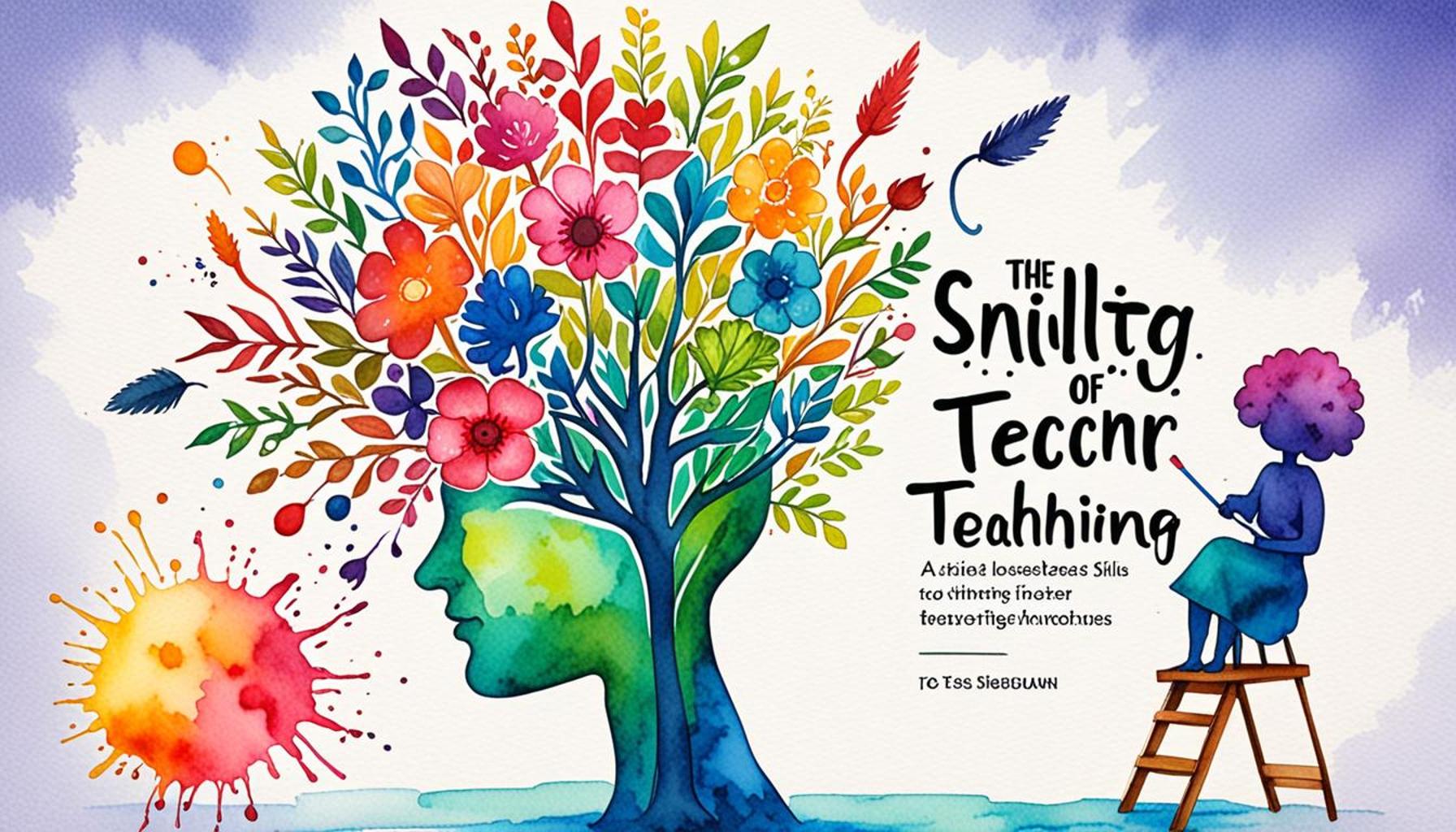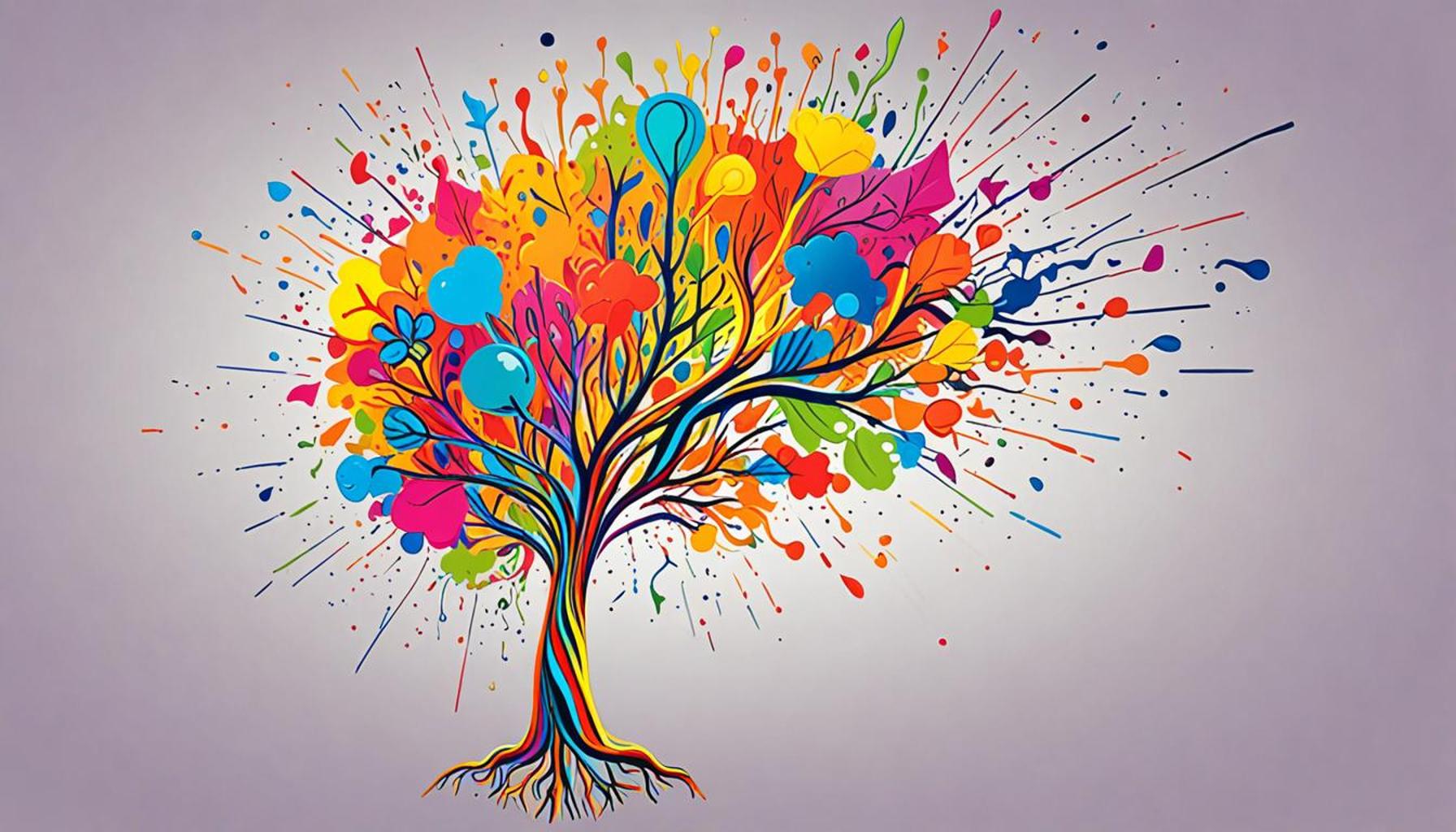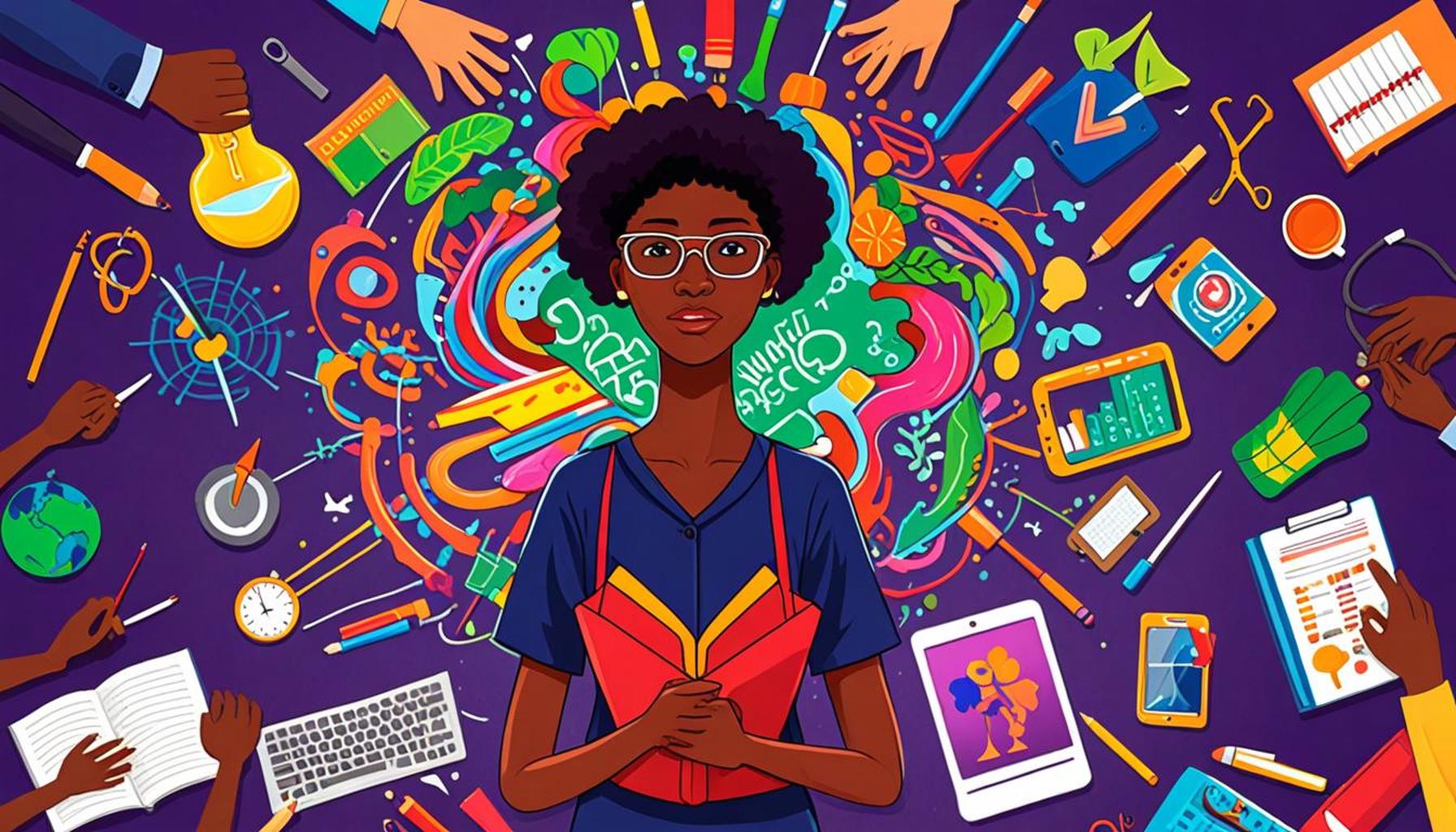The Effectiveness of Competency-Based Teaching Techniques in Fostering a Growth Mindset

Transforming Education Through Skill Development
In a world characterized by rapid technological advancements and swift changes in job markets, educational practices must evolve to meet contemporary needs. Traditional models often emphasize rote memorization of information, which can leave students ill-prepared for real-world challenges. Instead, competency-based teaching techniques focus on imparting essential skills that learners will utilize throughout their lives. This innovative approach fosters not only adaptability but also a growth mindset, a concept popularized by psychologist Carol Dweck, which posits that abilities can be cultivated through effort, effective strategies, and perseverance.
The relationship between competency-based education and a growth mindset is vital for developing resilience among learners. By adopting strategies that encourage students to view challenges as opportunities for growth, educators can significantly impact their long-term engagement with learning. Some of the key elements of this approach include:
- Personalized Learning: This principle is about tailoring educational experiences to fit individual student needs. In a diverse country like Nigeria, where backgrounds and learning paces vary widely, individualized learning plans can empower students to excel at their own rate.
- Clear Learning Objectives: Establishing transparent competencies that students are expected to master helps provide direction. For instance, in subjects such as Mathematics or English Language, defining specific skills like problem-solving or effective communication is crucial.
- Assessment for Learning: Using formative assessments—such as quizzes and peer reviews—allows educators and students to monitor progress continuously. This real-time feedback can inspire learners to revisit concepts and enhance their understanding, reinforcing the idea that abilities can be improved.
Particularly in Nigeria, where a myriad of educational challenges—including inadequate infrastructure and varied cultural influences—affects learning outcomes, the integration of local contexts into these teaching models becomes essential. By incorporating culturally relevant materials and examples, teachers can create a more dynamic classroom environment that fosters engagement and interest. For example, integrating local history or literature into lessons makes them not only relevant but also relatable to students’ lives.
Research highlights that when students engage with competency-based techniques, they are more likely to experience heightened motivation. This increased engagement encourages a proactive approach to learning. Learners see challenges not as obstacles but as opportunities for personal development. This ability to embrace challenges can have profound implications for students’ future careers and personal lives, equipping them with a toolkit for lifelong learning.
This investigation into the effectiveness of competency-based education showcases its potential to reshape the educational landscape. By recognizing its importance, educators can unlock the full potential of learners, aiding them in navigating an unpredictable future with confidence and competence.
RECOMMENDED: Check out this similar article
Embracing Change: The Core Principles of Competency-Based Education
At the heart of competency-based education lies the essential belief that every student has the potential to master skills and knowledge when given the right tools and encouragement. This is especially pertinent in a country like Nigeria, where educational disparities are prevalent due to varying socio-economic backgrounds. By cultivating a culture that emphasizes personalized learning and adaptive teaching methods, we can significantly shift the educational paradigm towards one that prioritizes skill acquisition over mere factual recall.
One of the most powerful aspects of competency-based teaching techniques is their inherent focus on student-centered learning. Instead of adhering to a strict, one-size-fits-all curriculum, educators are encouraged to:
- Identify Individual Strengths and Weaknesses: Teachers can implement assessments to understand each student’s current competency level, thereby allowing them to tailor lessons that build on existing strengths while addressing areas for improvement.
- Encourage Self-Paced Learning: With guided flexibility, students can progress through materials at their own pace. This approach mitigates feelings of frustration associated with falling behind and empowers learners to take ownership of their educational journey.
- Facilitate Collaborative Learning Experiences: Creating opportunities for peer-to-peer learning can enhance motivation, as students learn from one another and celebrate shared successes, reinforcing the notion that every learner’s journey is unique.
Incorporating technology in the classroom also underpins competency-based learning, providing diverse resources and tools that help foster a growth mindset. For example, online platforms that offer interactive problem-solving exercises encourage students to experiment and learn from their mistakes in a risk-free environment. Such technologies not only enrich the learning experience but also align educational practices with the digital realities of today’s world.
Moreover, the relationship between competency-based education and a growth mindset is evident in the assessment methodologies employed. Traditional assessments often create a fixed perception of ability; however, competency-based assessments focus on progress over time, thereby reinforcing the principle that skills can be developed. Teachers can offer regular feedback, nurturing a sense of continuous improvement in students. Such an environment cultivates resilience and a willingness to tackle challenges head-on, centering learning on mastery rather than mere completion.
As Nigeria’s educational landscape continues to evolve, recognizing the potential of competency-based teaching techniques to foster a growth mindset becomes imperative. By shifting emphasis from static intelligence to dynamic competence, we cultivate learners who are not only prepared to meet the demands of the future but are also enthusiastic about their educational pursuits. This transformation ultimately shapes a generation that values learning as a lifelong endeavor, poised to contribute meaningfully to society.
| Advantage | Description |
|---|---|
| Personalized Learning Experiences | Competency-based teaching allows students to learn at their own pace, promoting a growth mindset through tailored feedback and support. |
| Enhanced Student Engagement | By incorporating real-world applications of knowledge, students become active participants, which is essential for fostering a growth mindset. |
Competency-based teaching techniques not only address individual learning needs but also create an environment where students feel comfortable making mistakes. This flexibility encourages resilience and the willingness to tackle challenges—critical components of a growth mindset. Teachers can implement strategies such as peer assessments and collaborative projects, which deepen understanding and facilitate meaningful discussions. As students engage with content actively, they are more likely to cultivate a passion for learning that transcends traditional educational boundaries. Moreover, focusing on mastery rather than grades places emphasis on progress, inviting a culture of constant improvement and collaboration. This approach aligns with the need for adaptive learning strategies in a rapidly changing world, where the ability to evolve is paramount. Engaging in this comprehensive competency-based framework can unlock the full potential of students, driving them to innovate and lead in various fields.
RECOMMENDED: Check out this similar article
Transformative Assessment Strategies: Shaping Mindsets for Success
In the quest to adopt competency-based teaching techniques, one cannot ignore the transformative role of innovative assessment strategies in nurturing a growth mindset. The shift from traditional grading systems to more formative assessments is pivotal in this educational evolution. In Nigeria, where education systems have often leaned towards rote memorization, such changes are revolutionary.
Formative assessments are designed to provide insights into a student’s learning process, rather than just summing up their performance at a single point in time. They involve various methods—such as quizzes, performance tasks, or class discussions—that actively engage students in their learning journey. For instance, a project-based assessment that requires students to apply concepts learned in real-world scenarios not only demonstrates their understanding but also fosters critical thinking and adaptability. As students see their own progress and receive constructive feedback, they begin to internalize the belief that effort and persistence lead to improvement.
Another compelling facet of competency-based education is the incorporation of reflection as a learning tool. When students are encouraged to assess their own learning, they develop metacognitive skills that empower them to take control of their educational paths. Reflection helps students to identify their challenges, celebrate achievements, and set future goals. In the Nigerian context, where self-assessment could feel foreign, integrating structured reflection exercises can encourage students to articulate their experiences, thus deepening their engagement.
- Peer Assessment: Part of competency-based teaching techniques includes fostering an environment wherein students can assess each other’s work. This collaborative approach encourages students to provide constructive feedback, reinforcing the notion that learning is a collective journey.
- Self-Directed Learning Plans: Implementing personalized learning plans allows students to set their own learning goals and track their progress. This approach nurtures accountability and independence, key components of a growth mindset.
Moreover, the role of teacher feedback cannot be overstressed. In competency-based education, ongoing feedback is crucial. Rather than merely grading assignments, educators can give specific, actionable insights that help students understand where and how they can improve. For example, a teacher could comment on a project submission by highlighting effort in research, while also suggesting areas for enhanced analytical thinking. This form of feedback encourages students to view challenges as opportunities to grow rather than as reflections of their fixed abilities.
Culturally, the acceptance of failure as a learning tool is also essential in Nigeria’s educational landscape. Competency-based education nuances the fear of failure, teaching students through practical, real-life challenges that mistakes are a part of the learning process. Celebrating failure as a stepping stone rather than a setback instills resilience and fosters a belief in self-improvement—a direct correlation to a growth mindset.
Importantly, fostering supportive family and community environments further propels students towards adopting a growth mindset. By engaging parents and community leaders in the conversation around competency-based education, students receive a reinforced message that personal development and lifelong learning are valued. Initiatives in schools that promote community involvement in educational processes can greatly enhance motivation and mindset transformation among students.
Ultimately, the strategies inherent in competency-based teaching show immense potential in reshaping the approach to learning in Nigeria. Prioritizing growth over grades equips students with a mindset that thrives on challenges, enhances learning opportunities, and prepares them to succeed beyond the classroom.
RECOMMENDED: Check out this similar article
Conclusion: Empowering Future Learners through Competency-Based Techniques
In summary, the integration of competency-based teaching techniques in education, particularly within the Nigerian context, holds significant promise for fostering a growth mindset among learners. By prioritizing understanding over mere memorization, these approaches create a rich environment where students can actively engage in their learning journeys. The adoption of transformative assessment strategies not only provides continuous feedback but also instills a sense of ownership over one’s educational progress.
Promoting self-reflection and peer assessment empowers students to critically evaluate their strengths and areas for development, while constructive teacher feedback cultivates resilience and encourages an embrace of challenges. This shift in pedagogical practice can alleviate longstanding fears associated with failure, repositioning it as a critical component of the learning process that drives growth and improvement.
Moreover, the involvement of families and communities plays a pivotal role in reinforcing these values, creating a supportive ecosystem that values personal development and lifelong learning. As stakeholders in education—the government, educators, parents, and communities—collaborate to promote these effective strategies, they are collectively paving the way for a new generation that views challenges not as setbacks, but as opportunities to thrive.
Ultimately, the success of competency-based education in nurturing a growth mindset ensures that students are not merely prepared to excel in standardized tests but are equipped with the skills and resilience needed for real-world challenges. This paradigm shift not only enhances educational outcomes but also aligns with broader goals of social and economic development in Nigeria. By embracing these methodologies, educators can play a crucial role in shaping a brighter future for all learners.



